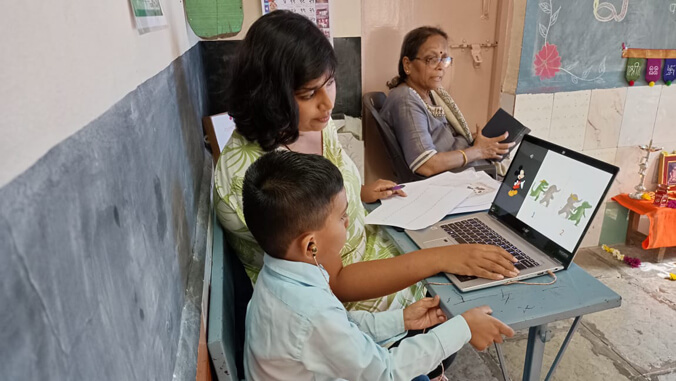
There are more than 6,000 languages across the world and nearly half of them are spoken in the Asia-Pacific region—a geographic focus of the Department of Linguistics in the University of Hawaiʻi at Mānoa’s College of Arts, Languages & Letters.

The department was founded in 1963 as an active research and teaching unit dedicated to the scientific study of language. Since then, it has become the only department in the nation that offers a graduate program in language documentation and conservation, and is well-known for both observational and experimental approaches to the study of language. Several linguistics faculty are also internationally recognized for their research on the languages of the Pacific and Asia.
These are some of the factors that have contributed to the Department of Linguistics being named as the 10th-ranked linguistics program in the U.S. and the 19th-best program worldwide in the 2023 QS World University Rankings by Subject.
“We are delighted and honored to learn of our top-10 ranking this year. It means a lot to our students, faculty and staff to be recognized in this way, and it speaks volumes about the support our college and the university have given us,” said Andrea Berez-Kroeker, chair of the Department of Linguistics.
Why study linguistics at UH Mānoa?
Linguistics is the scientific study of language, with a focus on how it is acquired, is used, changes over time, and is represented in the brain. Threats to linguistic diversity can be addressed through documentation and conservation efforts. According to the Department of Linguistics, there are unique reasons to study linguistics in Hawaiʻi:
- Language and multilingualism are more noticeable here than in many places in the country, because of the state’s unique diversity of languages—more than 100 languages from all over the world are spoken here.
- Hawaiʻi offers a natural laboratory for trying to understand multilingualism, code-mixing (changing from one language to another mid-sentence), language learning and acquisition, language endangerment and revitalization (of the Hawaiian language, for example), and pidgins and creoles.
- Languages are closely tied to cultural, geographic and ethnic identity, issues that are central to Hawaiʻi’s education and politics.
The department offers MA and PhD degrees, and a BA in linguistics major through the Interdisciplinary Studies Program. The MA program has tracks in language documentation, experimental linguistics and linguistic analysis, and the PhD program offers similar opportunities at a more advanced level.
“Our department has had working relationships with language communities throughout the Pacific for a long time, and looking ahead, we are eager to also build stronger partnerships with the many diasporic language communities who live here in Hawaiʻi, especially from Micronesia,” Berez-Kroeker said. “As globalization and climate change cause more people to be displaced from their homelands, academia will need to seek opportunities for meaningful engagement. Language is a promising locus for social justice because it’s such a central part of the human experience.”
“I really appreciate that everyone in the Department of Linguistics, the faculty, the staff and the students are willing to support each other in their goals,” said third-year PhD student Anupama Reddy. “Apart from academic research, I’ve been lucky to receive a lot of guidance in terms of career and professional development, like introductions to researchers in the field whose work aligns with mine. I’ve also been given the opportunity to try new things, like design curricula for new classes. The Department of Linguistics has given me a lot of confidence and experience with the career I hope to have in the future.”
—By Marc Arakaki

